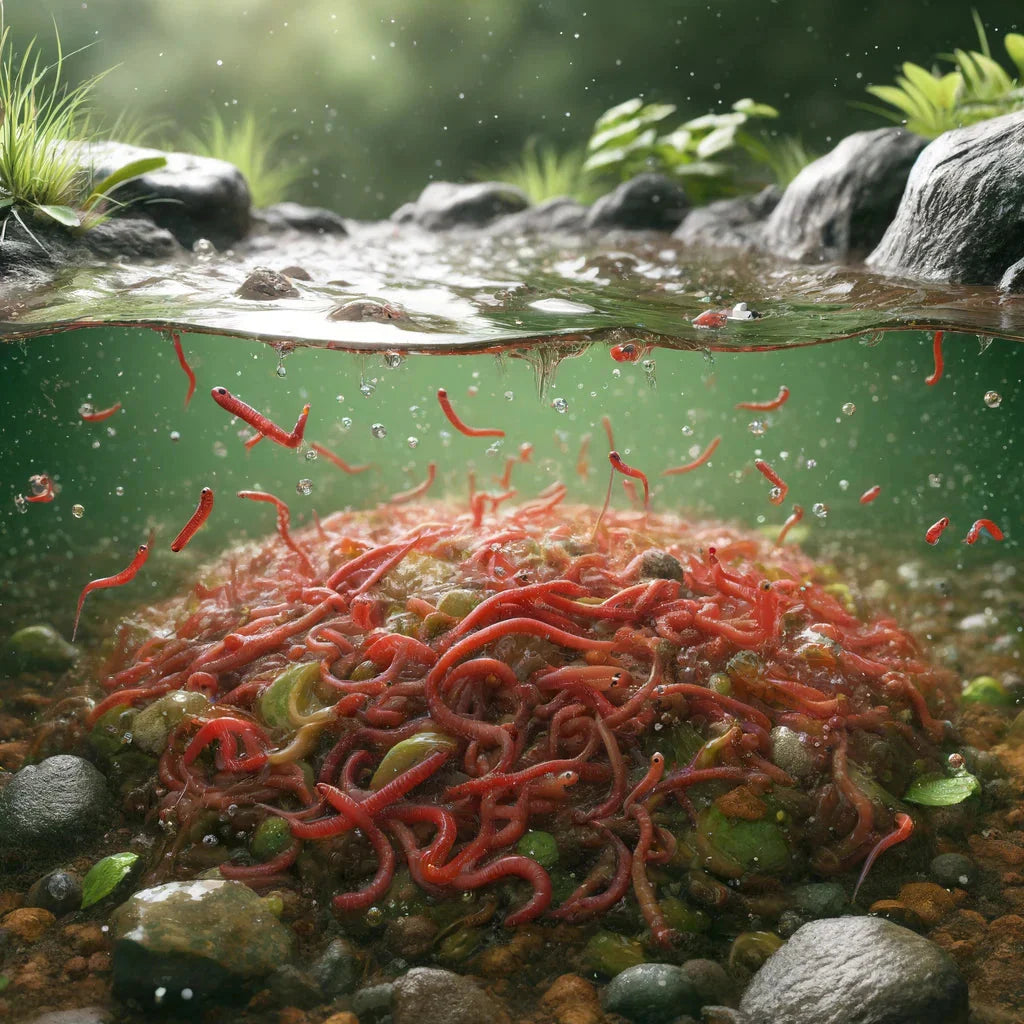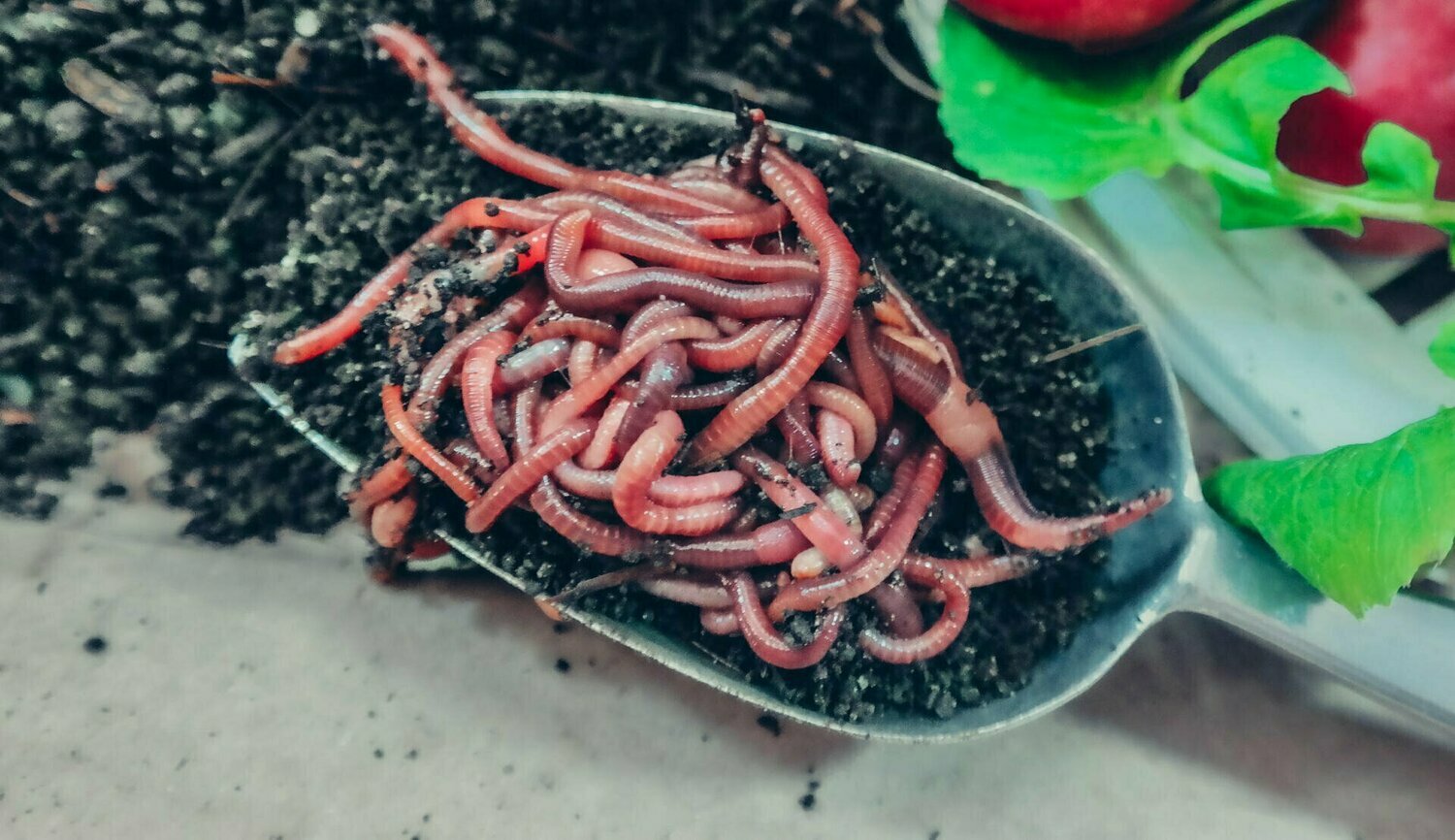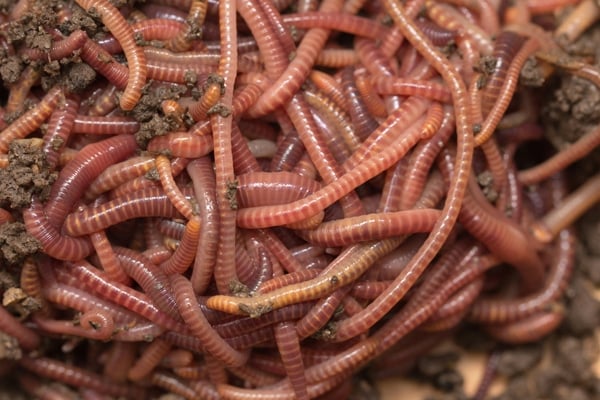Why Red Wigglers Are Necessary for Natural Farming
Red wigglers play an essential function in organic farming, largely via their distinct capacity to decompose organic products and boost dirt wellness. Their activity not only enriches the soil with important nutrients yet also fosters a thriving community essential for sustainable farming. The physical processes they involve in, such as oygenation and moisture retention, contribute considerably to enhanced crop yields. However, the extent of their effect on farming techniques and soil biology raises intriguing inquiries about the future of chemical-free farming. What ramifications might this have for farming methodologies?
Function of Red Wigglers in Soil Wellness

In addition, red wigglers boost dirt structure by creating networks as they tunnel. These networks enhance oygenation and water infiltration, promoting a much healthier origin environment. Their task additionally assists in maintaining ideal dampness levels, which is crucial for healthy and balanced plant development.

Advantages of Worm Castings
Worm castings, the nutrient-rich excrement generated by red wigglers, work as a powerful change for chemical-free farming. These spreadings are brimming with vital nutrients such as nitrogen, phosphorus, and potassium, which are important for plant development. Unlike synthetic plant foods, worm castings launch nutrients gradually, offering a consistent supply in time and reducing the risk of nutrient leaching and runoff.
Furthermore, worm castings enhance dirt framework and oygenation, advertising much healthier origin systems. Their high natural issue content enhances dampness retention, making it possible for plants to much better stand up to drought problems. In addition, worm castings include valuable bacteria that sustain plant health by subduing microorganisms and enhancing nutrition uptake.
The application of worm castings can result in raised crop yields and boosted top quality of fruit and vegetables, making them an indispensable source for natural farmers. Their use additionally lines up with lasting farming techniques, adding to dirt fertility without the adverse ecological influences related to chemical plant foods. On the whole, the consolidation of worm castings into agricultural practices fosters a much more resistant and efficient ecological community, emphasizing the relevance of red wigglers in natural farming systems.

Enhancing Nutrient Biking
(red wiggler fishing worms)Nutrition biking is a vital procedure in organic farming, and the combination of red wigglers plays a pivotal role in enhancing this cycle. As red wigglers eat decomposing organic matter, they excrete nutrient-rich castings, which are bristling with valuable microorganisms.
Additionally, company website red wigglers aid to increase the mineralization of nutrients, converting them from inert forms into bioavailable kinds that plants can take in. This procedure is important for preserving soil fertility and promoting healthy crop development. The existence of red wigglers additionally urges a varied soil environment, promoting an equilibrium of nutrients that sustains various plant types.
Improving Soil Structure
The improvement of soil structure is essential for cultivating a healthy and balanced farming ecological community, and the activity of red wigglers considerably adds to this renovation. These earthworms play a vital role in freshening the soil and creating a network of channels that help with water seepage and origin infiltration. As they tunnel through the soil, red wigglers damage up compressed layers, permitting better oxygen exchange and advertising microbial task.
Additionally, the raw material created from their waste, referred to as vermicast, improves dirt aggregation. This process creates steady clumps of dirt bits, boosting dirt porosity and reducing disintegration (red wigglers). The visibility of red wigglers likewise urges the advancement of beneficial fungal networks, which are important for nutrient uptake by plants
Encouraging Lasting Practices
Incorporating red wigglers into organic farming practices not only boosts dirt health and wellness however additionally advertises sustainable agricultural approaches. These earthworms play an important duty in vitamins and mineral cycling, changing organic waste into useful compost that enriches the dirt. By utilizing red wigglers, farmers can successfully decrease reliance on synthetic plant foods, consequently reducing chemical overflow and its destructive results on ecosystems.
Moreover, the consolidation of red wigglers motivates the technique of recycling organic products, such as cooking area scraps and ranch waste. This waste decrease strategy not only lowers disposal expenses yet also promotes a closed-loop system where nutrients are continually returned to the soil (red wigglers). Such practices are important in mitigating environment modification, as they enhance carbon sequestration and minimize greenhouse gas emissions
Furthermore, red wigglers improve water retention in the dirt, which is important in times of dry spell. Their burrowing tasks develop channels that permit water to penetrate deeper into the ground, thus promoting reliable water usage. Inevitably, integrating red wigglers into organic farming not just sustains biodiversity however likewise straightens with the principles of sustainable agriculture, using an alternative strategy to food production.
Verdict
In verdict, red wigglers play a vital duty in natural farming by considerably enhancing soil health and wellness and fertility. Hence, the assimilation of red wigglers into farming practices is essential for promoting sustainability and boosting overall soil top quality.